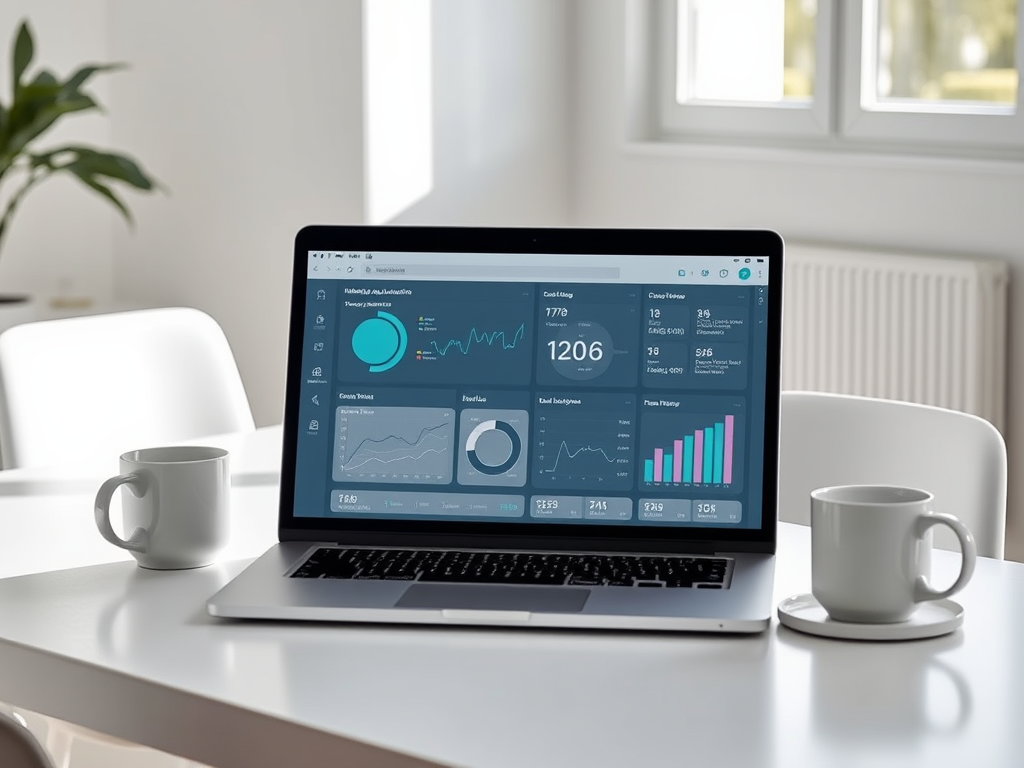Marketing automation is not just a buzzword but a pivotal strategy that has reshaped how small businesses engage with their audience. In an era defined by digital interaction, small companies often find themselves competing on a global scale, struggling to keep their marketing efforts efficient while nurturing customer relationships. Automation tools can help alleviate these pressures. By streamlining repetitive tasks and enhancing customer engagement, these tools allow small businesses to operate more like larger enterprises without the associated overhead costs. Understanding the nuances of marketing automation can empower small businesses to exhibit agility, creativity, and unprecedented effectiveness in their marketing strategies.
This article unpacks the essence of marketing automation, its myriad benefits, essential features, key considerations for choosing the right tool, and best practices for maximizing your marketing effectiveness. By the end of this piece, you’ll be well-equipped to leverage automation to drive growth, improve engagement, and enhance overall marketing outcomes.
Benefits of Marketing Automation for Small Businesses

As small business owners grapple with limited resources and time constraints, marketing automation emerges as a powerful ally. The automation of repetitive marketing tasks minimizes manual workload, paving the way for streamlined operations. This efficiency translates into significant time savings, enabling teams to focus on strategic planning rather than mundane tasks. Beyond saving time, automation enhances customer engagement by providing timely, relevant content tailored to individual preferences. This personalized approach fosters stronger customer relationships over time.
Small businesses that harness the potential of marketing automation often experience improved lead management. Automated systems nurture leads with relevant information at crucial moments, increasing the likelihood of conversion. Furthermore, leveraging marketing automation can lead to cost savings. Many of these tools offer budget-friendly solutions that align with the financial constraints typical of small business operations. In summary, the benefits of marketing automation are multi-faceted and critical for any small business aiming for robust marketing strategies.
- Enhanced operational efficiency
- Increased customer engagement
- Cost-effective marketing solutions
- Effective lead nurturing
- Real-time analytics and reporting
Key Features of Marketing Automation Tools

Not all marketing automation tools are created equal. Understanding the key features that distinguish successful automation platforms can guide small businesses in selecting the right solution. A standout feature is email marketing automation, which allows businesses to set up personalized campaigns that reach customers based on their behavior and preferences. By automating this aspect of marketing, businesses can maintain consistent communication without requiring manual oversight.
Social media management tools are another critical feature. They enable businesses to plan posts, engage with their audience, and analyze the performance of their social media activities from one comprehensive dashboard. Moreover, a reliable marketing automation tool should offer robust analytics and reporting capabilities. These features are vital for tracking performance metrics and providing actionable insights. A well-rounded platform will empower small businesses to make informed decisions driven by real data.
- Email marketing automation
- Social media management tools
- Advanced analytics and reporting
- Lead tracking and scoring
- CRM integration capability
| Tool Name | Key Features | Price Range |
|---|---|---|
| HubSpot | Email automation, CRM integration, Analytics | $50 – $3,200/month |
| Mailchimp | Email marketing, Landing pages, Analytics | Free – $299/month |
| ActiveCampaign | Email automation, CRM features, SMS marketing | $9 – $149/month |
| ConvertKit | Email automation, Tagging, Forms | $0 – $79/month |
How to Choose the Right Marketing Automation Tool
Choosing the right marketing automation tool is crucial. Various factors influence this decision, starting with budget considerations. It’s essential to grasp the financial constraints that your business operates within. Different tools come with varying price points, and it’s crucial to find a solution that fits without compromising on vital features. Beyond cost, consider the scalability of the platform. The right tool should grow alongside your business, accommodating an increasing number of features as your marketing strategy evolves.
Another essential aspect is user-friendliness. A tool that is intuitive and easy to navigate can drastically reduce the learning curve for your team. The more accessible a tool is, the more likely your team will adopt it effectively. Finally, ensure that the marketing automation tool integrates seamlessly with your existing technology stack, including your CRM and other software systems. This integration is necessary for maintaining a cohesive workflow and ensuring consistent data across platforms.
Best Practices for Implementing Marketing Automation
To fully capitalize on marketing automation tools, adopting best practices is paramount. Start by establishing clear goals that outline what you want to achieve through automation. Setting measurable objectives provides direction and benchmarks for success. Regularly testing different campaigns is also vital. By analyzing performance data, you can tweak your approach and optimize campaigns for better results.
Another significant point is the importance of integration. Ensure that the marketing automation tool you select aligns with existing tools and software in your business ecosystem. This alignment can improve data flow and decrease redundancies in efforts. Additionally, focus on personalizing automated communications. Tailoring messages to reflect customer preferences and behaviors enhances engagement and fosters deeper connections with your audience.
Conclusion
Marketing automation opens up avenues for small businesses to enhance efficiency, engagement, and cost savings. By understanding and implementing the right tools with best practices, businesses can navigate the complexities of marketing with confidence. Embracing automation is not merely about keeping up with industry trends; it is about empowering your business to harness the full potential of modern marketing strategies. With the right approach, you can transform marketing efforts into powerful drivers of growth.
Frequently Asked Questions
- What is marketing automation? Marketing automation refers to software platforms and technologies designed to streamline, automate, and measure marketing tasks and workflows.
- Is marketing automation suitable for all small businesses? Yes, marketing automation can benefit small businesses across various industries by improving marketing efficiency and effectiveness.
- How much does marketing automation cost? Costs can vary widely based on features and provider, with options ranging from affordable entry-level solutions to more comprehensive and expensive platforms.
- Can I use marketing automation without a large marketing team? Absolutely. Many marketing automation tools are designed for small teams and can be managed by one person, allowing for efficient marketing execution.
- What are the common mistakes to avoid with marketing automation? Common mistakes include failing to personalize communication, neglecting proper testing, and not setting clear goals.
- How long does it take to see results from marketing automation? Results can vary depending on your strategy, but many businesses start seeing improvements within a few months of implementation.
